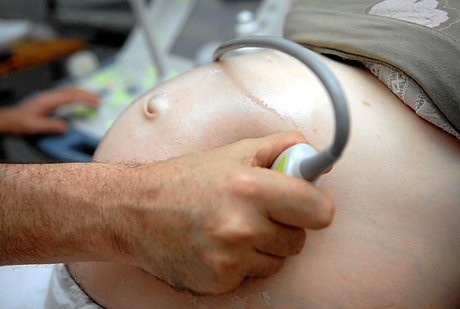The Royal College of Midwives (RCM) has backed a new report that urges the government to act on stillbirth, neonatal mortality and healthcare inequalities in maternity.
Sands and Tommy’s, two UK pregnancy and baby loss charities, published the third Saving Babies’ Lives progress report via their joint policy unit in May.
“Without investment in staff, time and training we are seeing widening gaps in outcomes”
Fiona Gibb
The report outlined that while stillbirth and neonatal mortality rates had reduced, progress “falls short” of expectations, including the government’s own targets.
It cited that, for England, the target had been to half rates of stillbirth, neonatal and maternity deaths between 2015 and 2025.
However, the target has been missed. The Sands and Tommy’s report said that, had it been met, 2,500 fewer babies would have died since 2018.
Further, it outlined inequalities of outcome for mothers and babies based on factors including ethnicity and deprivation.
Babies born in the most deprived areas were 2.5 times more likely to die in the first 28 days, compared to the least deprived areas.
Meanwhile, Black babies had a more than double chance to be stillborn compared to their White counterparts.
Dr Robert Wilson, head of Sands and Tommy’s Joint Policy Unit, said the response from the government in recent years was “simply not good enough” and called on ministers to heed the recommendations of the report.
The 10 demands to government
Renew targets on perinatal mortality and preterm births
Count miscarriages and publish data on them
Eliminate inequalities through the use of more data, equitable access to services and other action on the social determinants of perinatal mortality
Strengthen national maternity leadership
Clarify the workforce requirements for maternity
Allocate sufficient resources to the sector
Make informed choice a reality
Address unwarranted variation in services
Learn lessons from deaths
Prioritise baby loss in research
A series of 10 key demands were levelled at policymakers in the report, which focused on the government creating – and adhering to – a new national ambition for reducing deaths by 2035, to align with the upcoming NHS 10-year plan.
These national targets, the report said, should include reducing the stillbirth rate to two per 1,000 total births, the neonatal mortality rate to 0.5 per 1,000 live births for babies born at 24 or more weeks, and a preterm birth rate of 6% by 2035.
In relation to workforce, the report said: “Current discussions on workforce in maternity and neonatal care focus on staffing numbers, without first building consensus on what safe care looks like and then the staff needed to deliver it.
“Future development of the workforce must move away from a binary debate focussed on whether we do or don’t have enough staff and focus on the staffing requirements needed to deliver safe care, in line with nationally-agreed standards.”
The joint policy unit’s report was welcomed by the RCM, which called for “urgent, coordinated action” on deaths in maternity.
Fiona Gibb, RCM director of midwifery, said midwives needed the backing of government and employers to address the inequalities outlined by the report.
“Midwives are working tirelessly, often beyond their scheduled hours, to provide safe and compassionate care,” she said.
“But without investment in staff, time and training we are seeing widening gaps in outcomes.
“We know that midwives are increasingly supporting more complex pregnancies and births – especially in areas affected by deprivation – and they need the right support to do this safely.
“This comes from central government, in terms of investment, but it also comes from focus at trust and board level.”
The RCM said the ambitions from the policy unit were “achievable”.
Baroness Gillian Merron, minister for patient safety, women’s health and mental health, acknowledged that “far too many” women were not receiving perinatal and maternity care of sufficient quality.
“There has been considerable progress in reducing the stillbirth rate and neonatal death rate, but we know there is much more to be done,” she added.
“Through our Plan for Change, [the UK Government] will transform the NHS and maternity and neonatal services by training thousands more midwives, building on the 5.8% increase in the number of midwives we have already achieve since coming into office.
“We are setting an explicit target to close the Black and Asian maternal mortality gap, so we can get our health service working for women again.”

